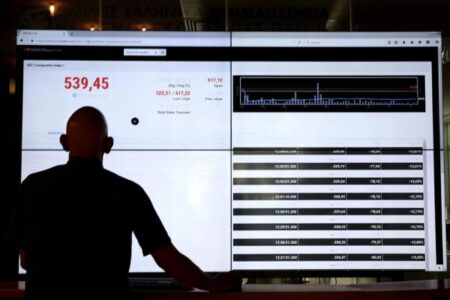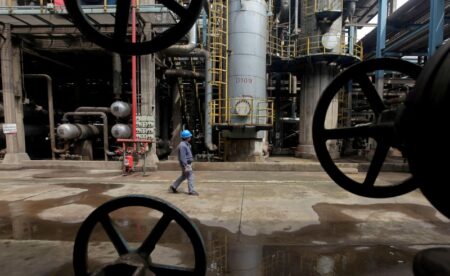By Pesha Magid, Hadeel Al Sayegh and Federico Maccioni
RIYADH/DUBAI (Reuters) – Saudi Arabia has scaled back lofty ambitions for its NEOM gigaproject to prioritize completing elements essential to hosting global sporting events over the next decade as rising costs weigh, three sources told Reuters a day after the sudden departure of the project’s longtime CEO.
Crown Prince Mohammed bin Salman, known as MbS, has poured hundreds of billions of dollars into development projects through the kingdom’s PIF sovereign wealth fund.
But the world’s top oil exporter has had to rein in some of its ambitious plans over the past year as low oil prices and production continue to hit an economy still heavily reliant on hydrocarbon revenues.
NEOM, a Red Sea urban and industrial development nearly the size of Belgium that is due to house nearly nine million people, is central to the prince’s Vision 2030 plan to create new engines of economic growth beyond oil.
The crown prince originally announced NEOM in 2017 as a 26,500-square-km (10,230-square-mile) high-tech development with several zones, including industrial and logistics areas.
One part of the project is “The Line” – which was envisioned as a 200-metre-wide series of “modules” for different urban uses sandwiched between two 500-metre-high, 170-km-long mirrored exterior facades that cut through a vast array of desert and mountains.
“When the (NEOM) project was first pitched as an idea, costs were $500 billion. However, The Line alone was going to cost over a trillion which was why it’s been scaled back,” one consultant with knowledge of the matter said.
The Line involves hanging pathways, gardens and a stadium and aims to run on 100% renewable energy.
But work on the project is now solely focused on finishing a 2.4 kilometre stretch including a stadium that is expected to host the final match of the 2034 soccer World Cup, after which future plans will be evaluated, one of the three sources with direct knowledge of the matter said.
“The Line changed its plans (in) September and October to integrate the stadium which brought utility to the project because it will be used for the World Cup,” he said.
Another priority is the completion of Trojena, a planned mountain resort which will host the Asian Winter Games in 2029, the same source said, adding that NEOM had been “scaled down and broken into chunks.”
The kingdom’s government communications office and NEOM did not immediately reply to a request for comment.
“They are really looking at everything closely now, which makes sense because everyone across different projects was working in silos and there was a lot of overlap,” the consultant said.
Project leaders have been working under extremely tight deadlines to deliver massive developments by the 2030 deadline with several schemes falling behind schedule or facing delays, multiple sources have previously said.
Two other sources familiar with the matter told Reuters that the departure of Nadhmi al-Nasr, the long-time chief executive, was partly due to his inability to deliver key goals.
NEOM has not commented on the reasons behind Nasr’s departure.
Another source with knowledge of the matter said on Wednesday several NEOM officials closely associated with the ex-CEO might also soon leave the company.
Read the full article here
















